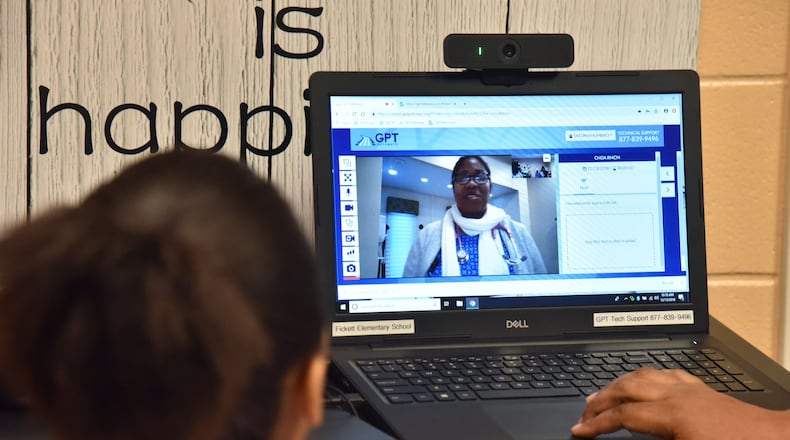Bills moving through the Georgia Legislature could lay the groundwork to expand telemedicine in the state.
Health care providers in the state are already taking initial steps down the digital medicine road. Internet portals where patients can write back and forth with their doctors and nurses are spreading. Some health care workers give advice over video camera to patients in different locations.
In the most striking example, Emory Healthcare has set up a computer office in Australia and sent some of its doctors there on rotating shifts. They take advantage of the opposite time zone: When it's the middle of the night for patients at Emory University Hospital, Emory doctors in Australia who are awake in broad daylight and clear-headed evaluate them by video hookup and give orders.
But in the nascent field, strange questions arise: If a doctor and a patient communicate from different places or even at different times of day, where and when was the care given? If they’re across state lines, which state’s medical license laws apply? Which insurance rules apply? Is providing the care even legal?
Legislation moving through the General Assembly this session could solidify answers to those questions and create certainty for companies to set up telemedicine operations across state lines. So doctors at a telemedicine company in South Carolina could start treating patients in Georgia, knowing that their licenses would be accepted.
Possible downsides: Although the physician would have to have a clean record and a license in the state where he or she is, some other states such as South Carolina have weaker physician discipline, according to the findings of a 2016 Atlanta Journal-Constitution investigation into states’ handling of physician misconduct.
The bills on licensing and insurance rules, Senate Bill 115 and Senate Bill 118, were both proposed by state Sen. Renee Unterman, R-Buford, the former head of the Senate Health and Human Services Committee, and have both passed the Senate.
Separately, legislators are continuing to work on the problem of expanding broadband internet access throughout rural Georgia. They set up some rules last year, but major holes remain including how to fund it.
Medical experts also caution that telemedicine is not the cure-all for Georgia's severe shortage of rural doctors. The patient on the receiving end has to have some high-quality technology, as well as, much of the time, someone to take vital signs and possibly take blood samples or give medicine. A recent Federal Communication Commission report found that 28 percent of rural Georgians don't have access to high-speed internet.
About the Author





